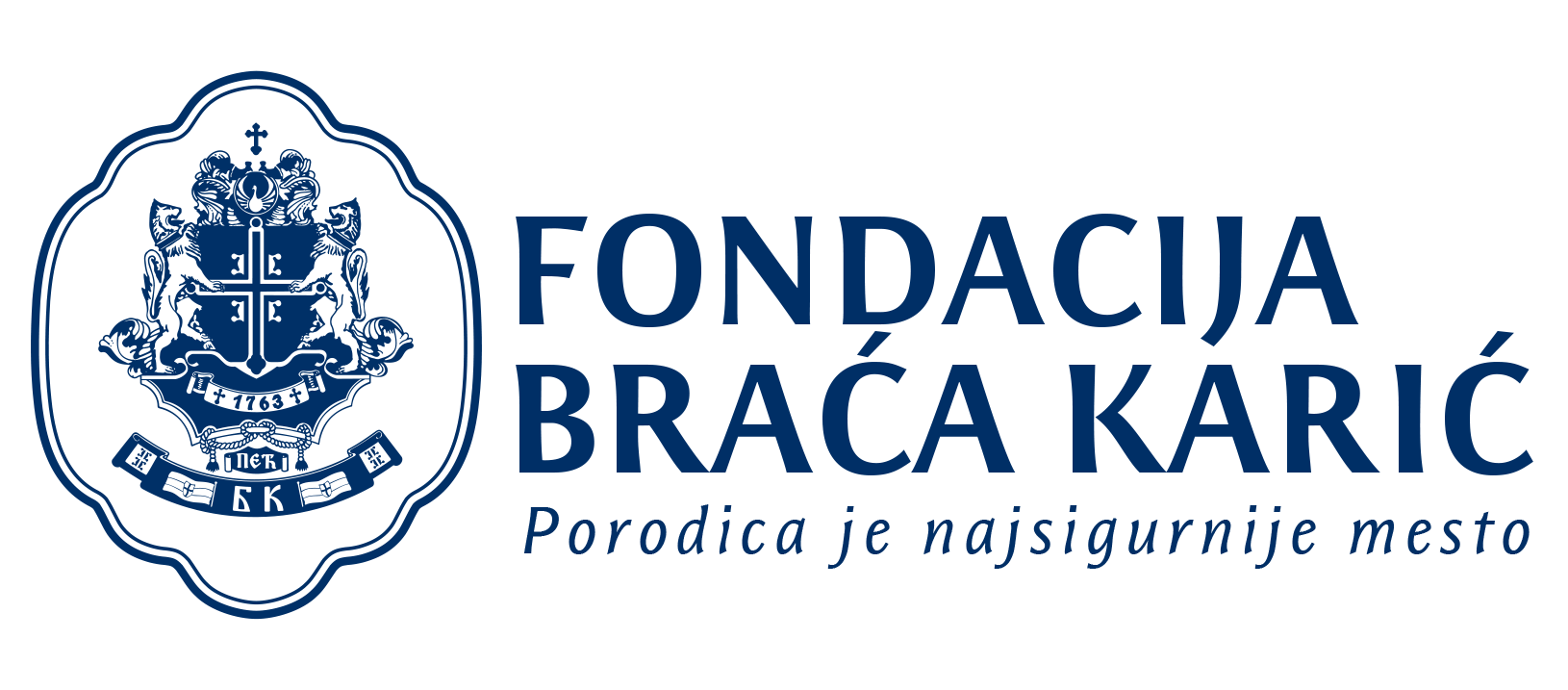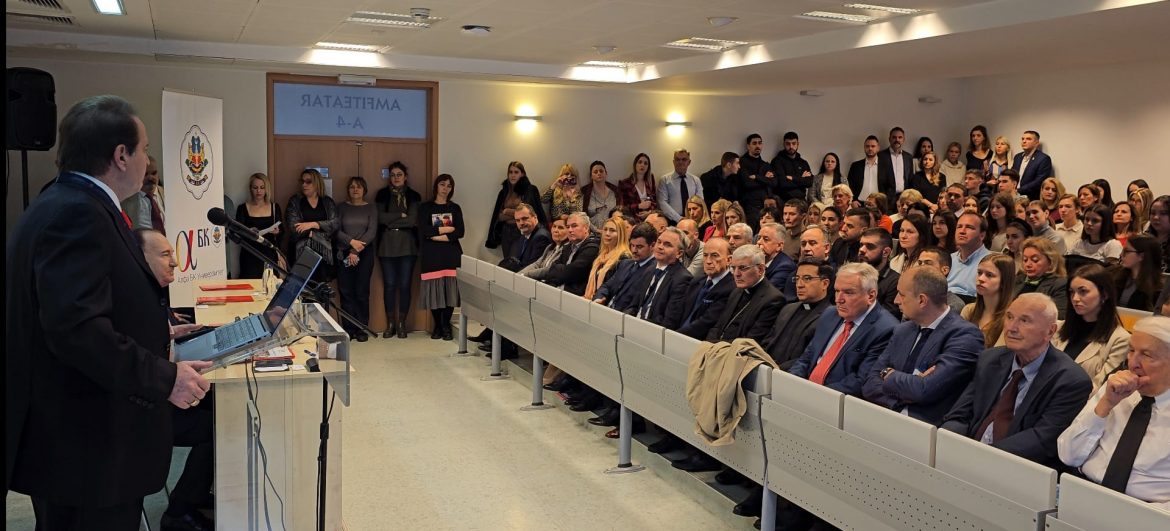
“Serbia, youth and the European Union” – the first international conference dedicated to youth and Serbia’s path to the EU
Alfa BK University, with the support of The Brothers Karic Foundation, held the first international conference dedicated to youth and Serbia’s path to the European Union. The conference was organized in the light of evident Euroscepticism and negative attitudes of young people towards the EU, as indicated by the results of the latest research by the National Youth Council of Serbia. The conference brought together many distinguished professors, scientists and experts from Serbia and the world, and it was organized with the aim of especially hearing the voice of young people about the numerous problems and perspectives of the progress of modern Serbian society towards EU membership and their future. This is the first in a series of planned international conferences that will be held at Alfa BK University in the coming period.
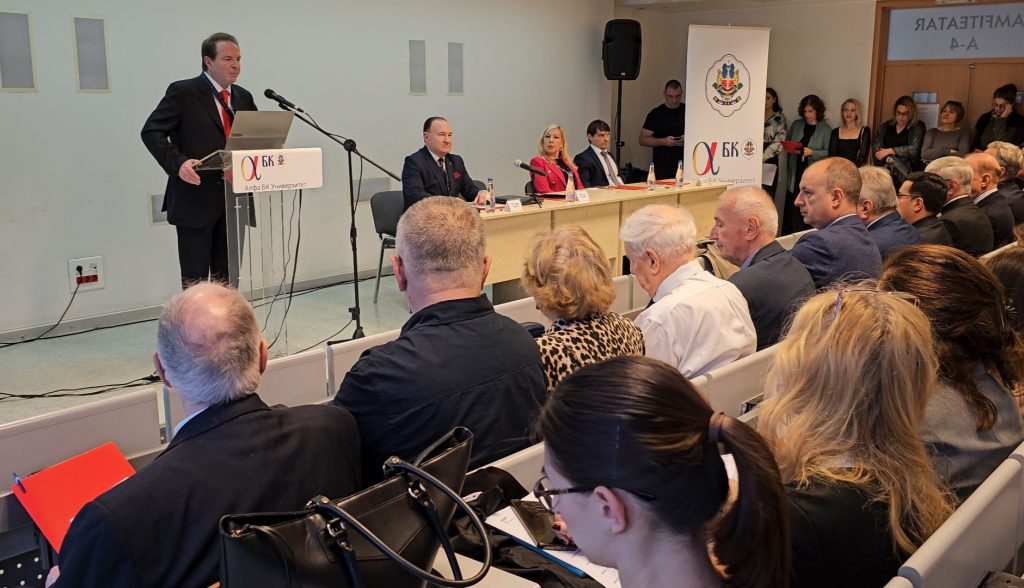
Mr. Bogoljub Karic speaks at the Conference
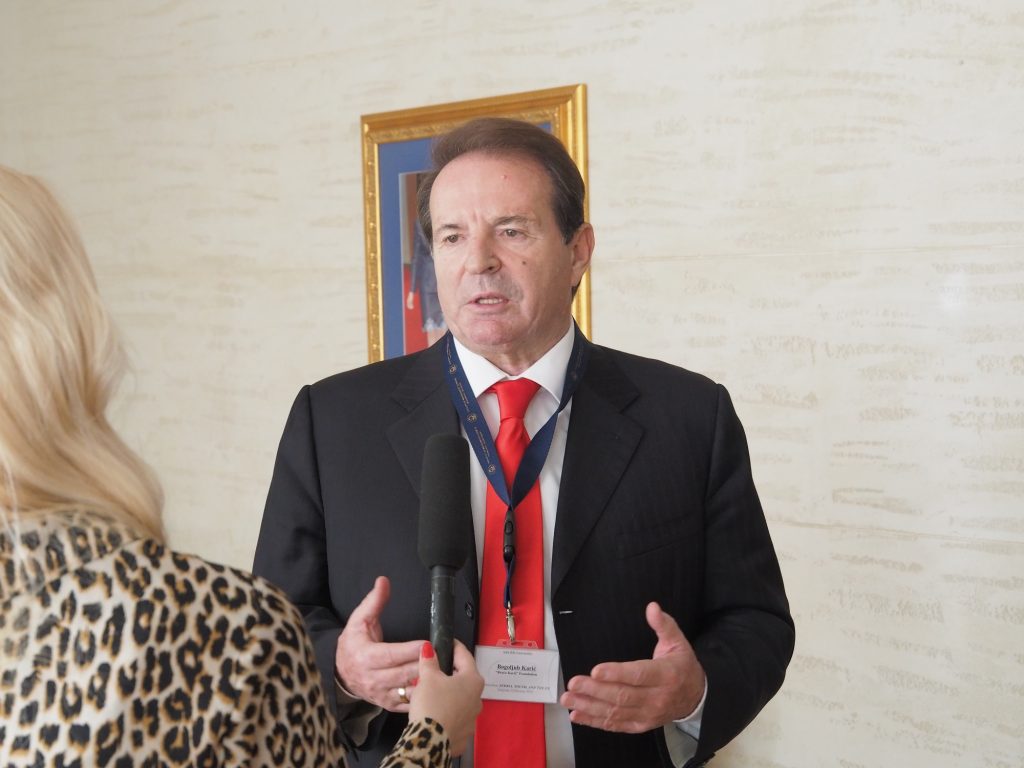
After the opening speech of the founder of Alfa BK University, Mr. Bogoljub Karić, on the importance of the role of young people in creating the future and destiny of modern Serbian society, distinguished guests and collaborators in the ongoing projects of the university presented their views at the conference. Mr. Bogoljub Karić pointed out how important it is for the entire region of the Western Balkans to become part of the EU, especially for security reasons. While the war continues in Europe, after Russia’s intense aggression against Ukraine, neither the beginning nor the end of the conflict is in sight. The consequence of this is that even small countries are arming themselves, which further endangers security. Preventing possible renewed conflicts in the countries of the Western Balkans would cost more than EU enlargement alone. The perspective of membership is the best possible mechanism that the EU has at its disposal in its engagement in the region in terms of ensuring permanent stability. Such thinking coincides with the views of most European leaders, who support the continuation of the open door policy when it comes to the Western Balkans. A new iron curtain must not be established on the European continent.
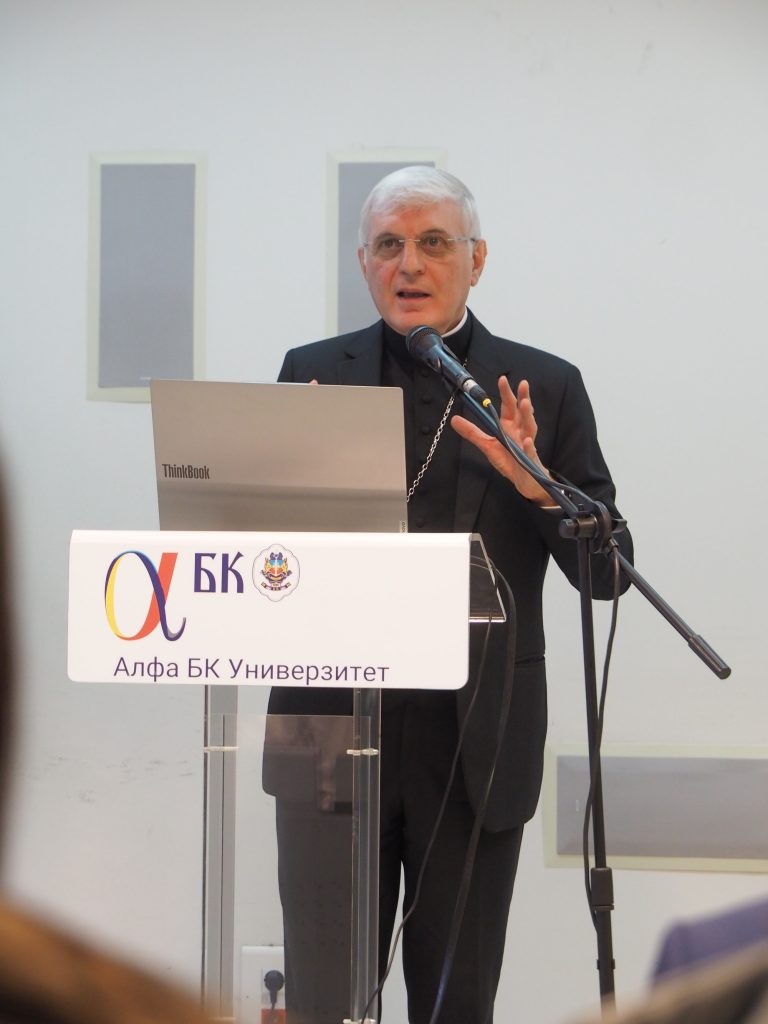
Apostolic Nuncio in the Republic of Serbia Santo Rocco Gangemi
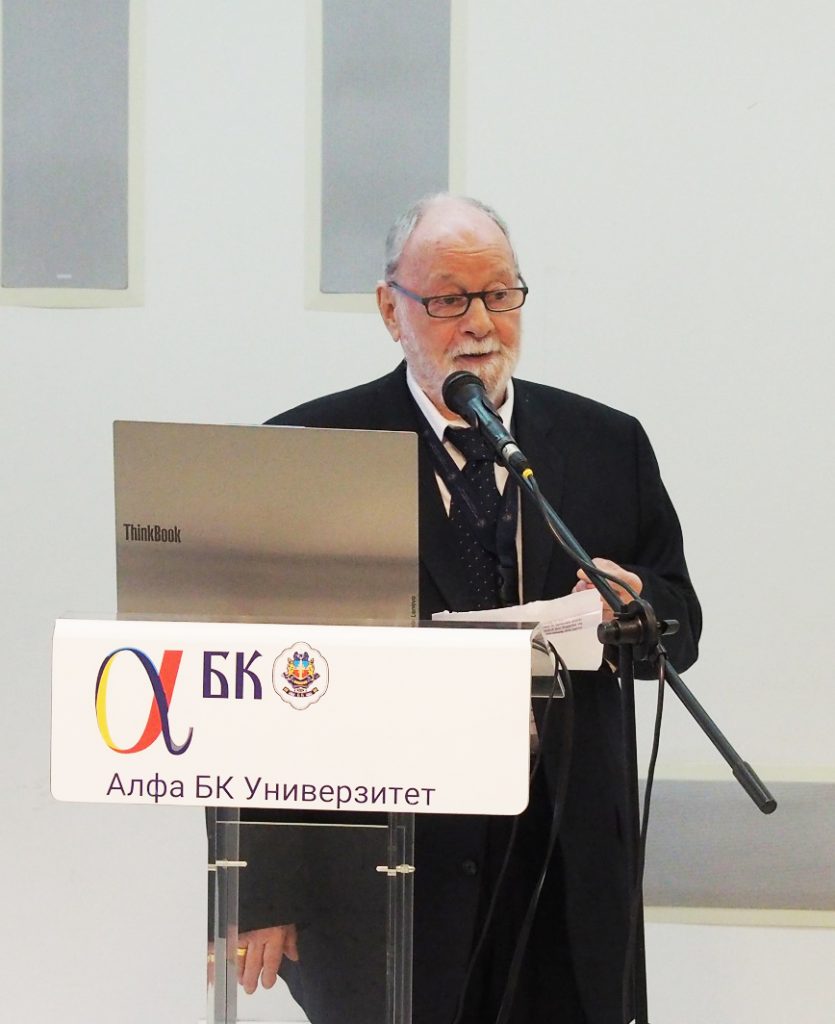
Mr. Geoffrey Levy, member of the advisory team of former US President Barack Obama
and professor of the National Academy of Public Health from Greece
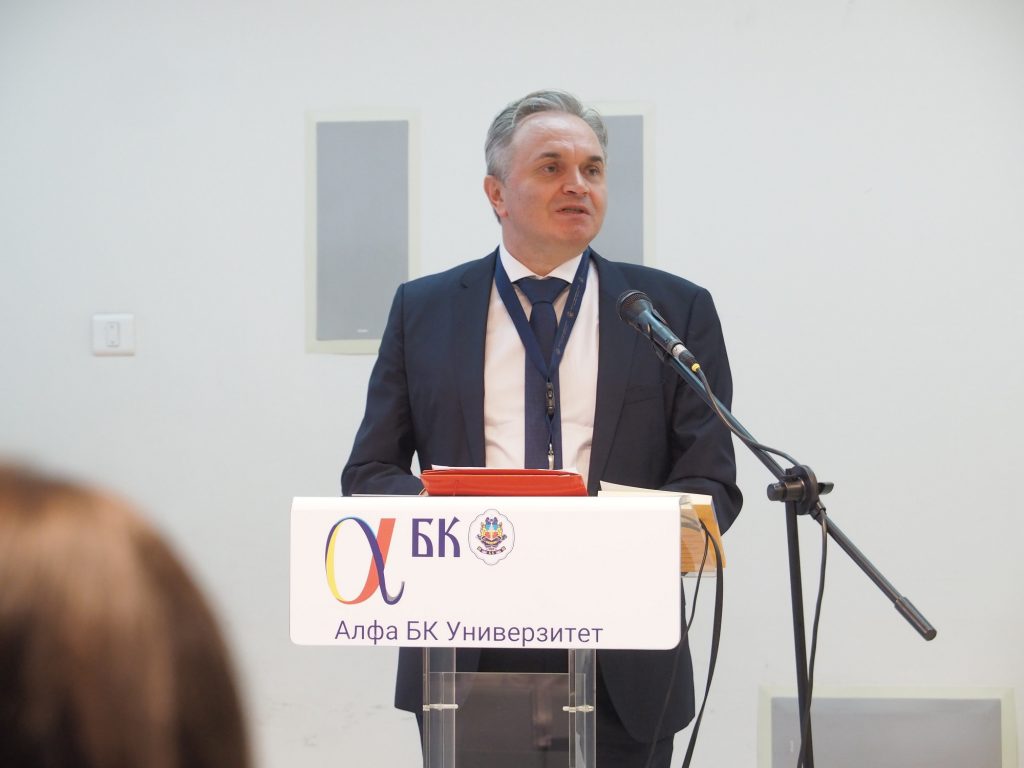
Director of the International Institute for Middle Eastern and Balkan Studies from Ljubljana Professor Zijad Becirovic
Mr. Karić addressed the young generations, especially those who look towards other parts of the world, integrations and organizations, to open their eyes well and not to look only with emotions and indoctrination. Serbia has always been part of and belonged to Europe. We share the fate of Europe, but we also contribute to its fate and future. Due to its, not only geographical position, Serbia belongs to Europe. Precisely because of its geostrategic position, it represents a bridge between East and West. Serbia represents the engine of European integration in the Western Balkans. It especially became so at the moment when the current president of Serbia, Aleksandar Vučić, started the process of rebranding Serbia in regional and international relations. The latest confirmation of those efforts is the organization of EXPO 2027, which is entrusted to Serbia.
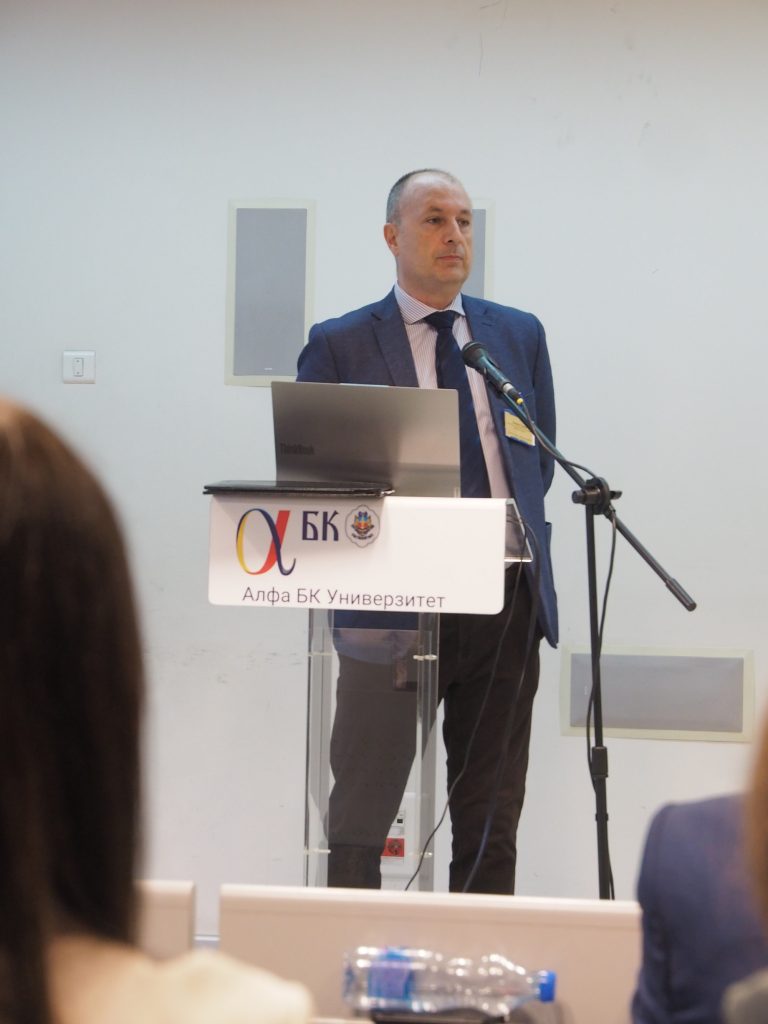
Dr. Vladimir Medjak
Numerous guests participated in the work of the conference, including the Apostolic Nuncio in the Republic of Serbia Archbishop Santo Rocco Gangemi, who drew attention to the historical need to build peace and understanding in the area of the Western Balkans, Europe and the world, and pointed out the natural and the indisputable belonging of Serbia to the community of European nations.
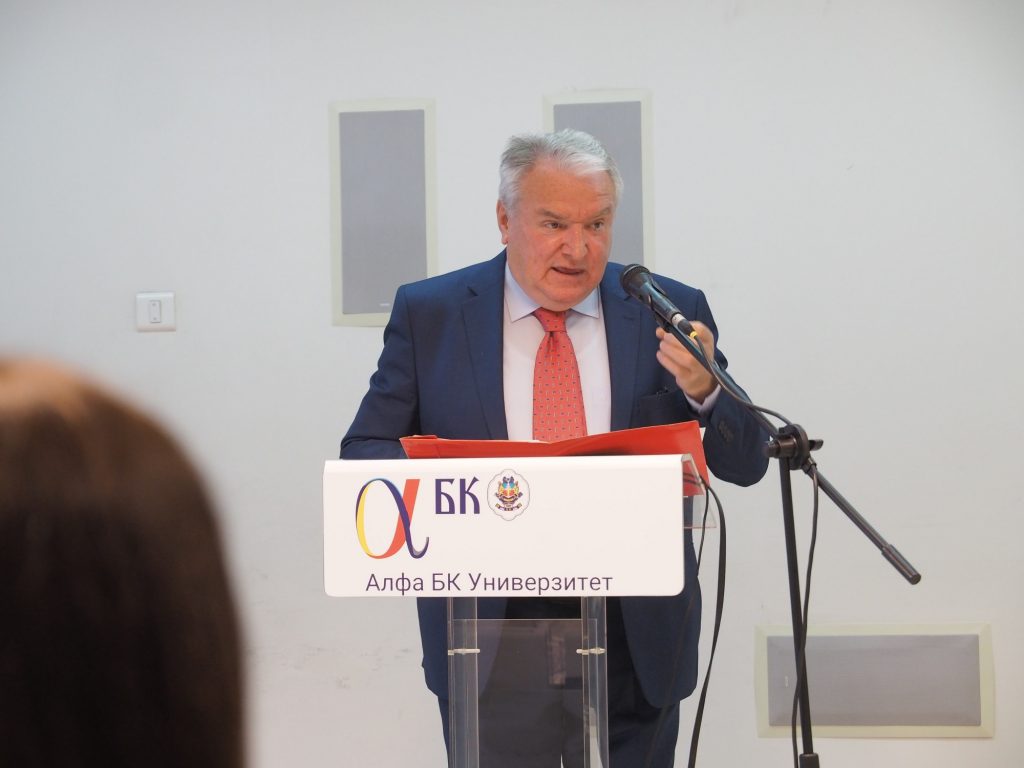
Nj. E. Srećko Đukić, ambasador i član Evropskog pokreta u Srbiji
The conference was chaired and moderated by Dr. Tihomir Simić, vice president of the BK Tesla business group, and co-chaired by the Rector of Alfa BK University, Dr. Jovan Veselinović. His Excellency Srećko Đukić, ambassador and member of the European Movement in Serbia, spoke on the topic of the advantages and disadvantages of Serbia’s potential membership in BRICS, and the vice-president of the European Movement in Serbia, Dr. Vladimir Medjak, presented concrete consequences and obstacles for Serbia on its way to EU membership. Member of the advisory team of former US President Barack Obama and professor of the National Academy of Public Health from Greece, Mr. Geoffrey Levy, emphasized the importance of the international philosophical aspect of Serbia’s position in the region and its relationship with the EU. Also, honorary professor of the Philological Faculty of the University of Belgrade, prof. emeritus Harry James Birks emphasized the importance of critical thinking and building a positive attitude in the process of making future decisions, relying on the philosophy and conclusions of great scientists and thinkers such as Charles Darwin and Friedrich Nietzsche. Director of the International Institute for Middle Eastern and Balkan Studies from Ljubljana, prof. Zijad Bećirović, spoke about the key role of Serbia as a driver of European integration in the Western Balkans, while assistant professor at the University of Ljubljana, Nejc Brezovar, devoted his presentation to the potential advantages of lowering the voting age for young people.
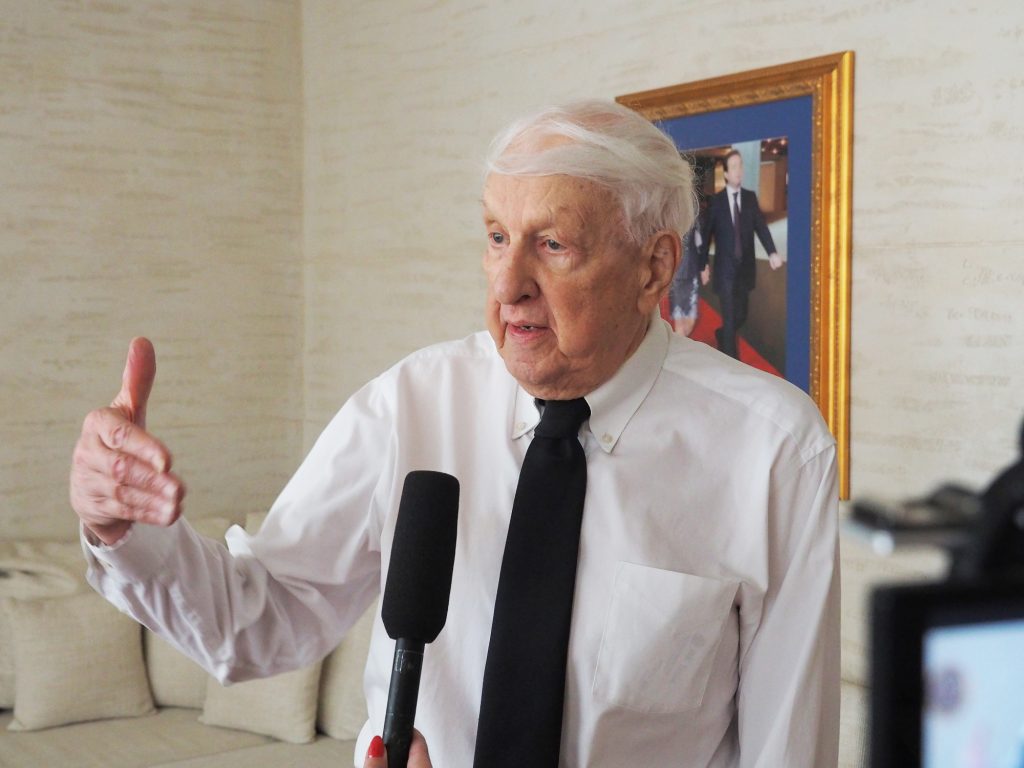
Prof. Harry James Birx
The work of the conference was focused on presentations by student representatives from various faculties of the University of Belgrade, who presented the views of young people on the possibilities of Serbia’s cooperation with the EU, especially from the educational, social, economic and political aspects. The proposal for the conclusions of the conference was presented by the student of Alfa BK University Marko Jerotijević, where he emphasized the noticeable skepticism and dissatisfaction of the young generation with the current pace and effects of the negotiation process between Serbia and the EU. He also emphasized the noticeable lack of a more concrete perspective for membership, appealing to European leaders for greater enthusiasm and commitment to the issues of group admission of all Western Balkan countries to the EU by 2030. He particularly emphasized the need for a bolder step towards the group admission of these countries to the EU, emphasizing in this process Slovenia as a role model and closest collaborator, and Germany in the role of a potential strategic partner. The young participants of the conference welcomed the initiatives to lower the voting age to 16, so that they would have the same opportunities as their peers in Europe and the world. This would allow young people to become part of political decision-making earlier, and they also advocated for the launch of new EU programs aimed at young people.
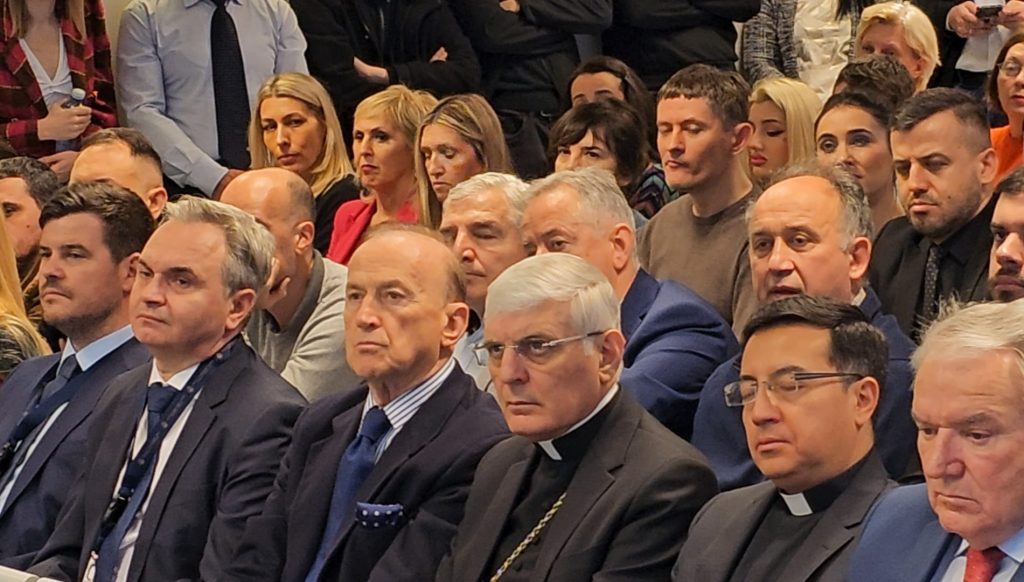
The conclusions emphasize the key role of unity and peace, as a fundamental European principle and prerequisite for building a stable and inclusive environment. Finally, in the proposed conclusions, the need to encourage the acceptance of European values was emphasized, while a strong appeal was made to create an environment and encourage their understanding and application, as the basis of general prosperity and development of society. This conference, achieving its initial goals, represents a pioneering undertaking that sets an example and paves the way for future activities of young people in the direction of increasing their social awareness and engagement.
